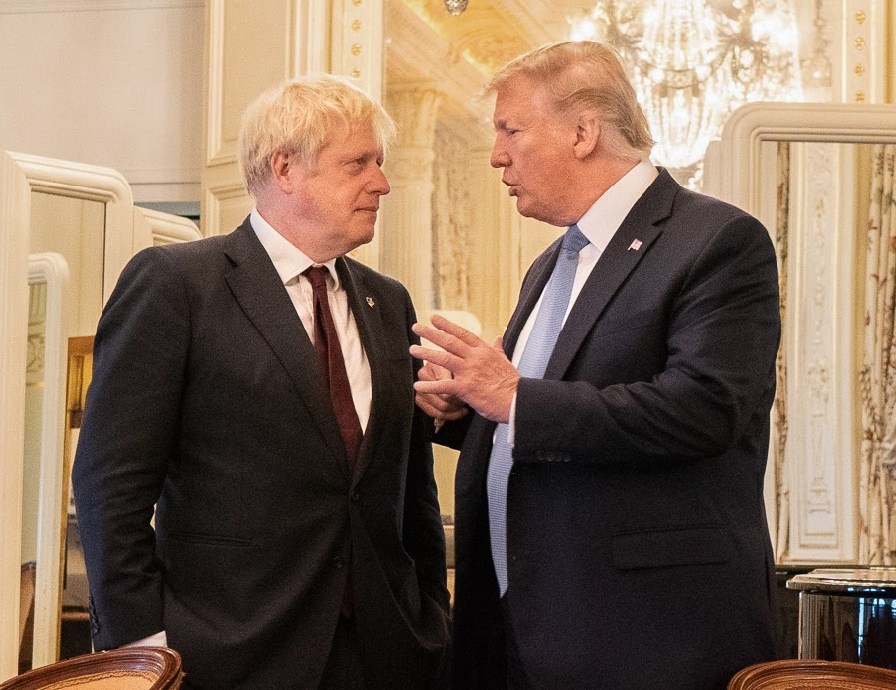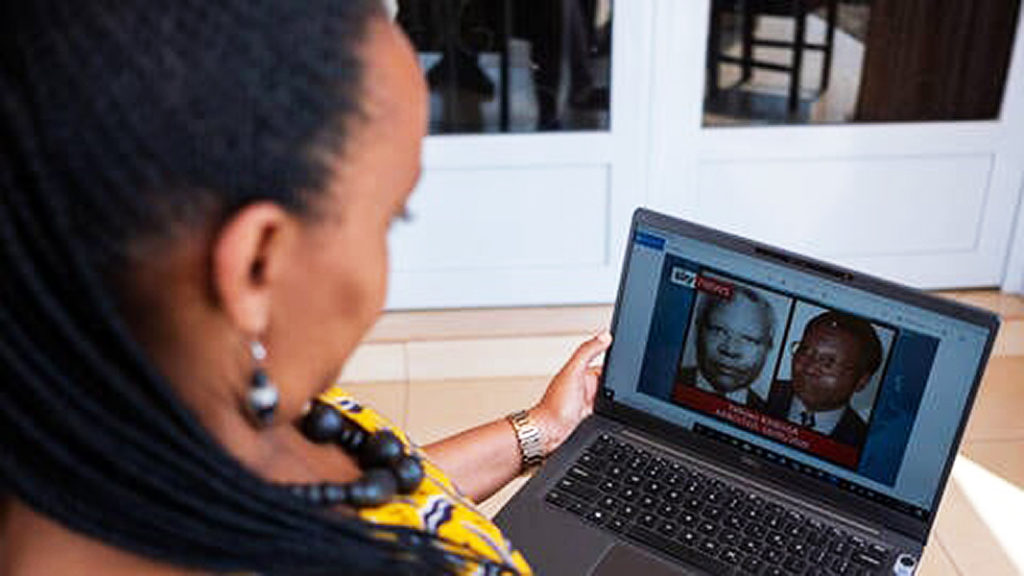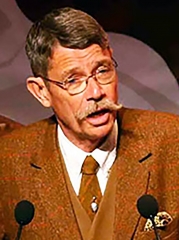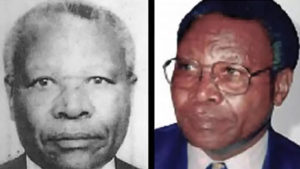Ambassador Kelly Craft
Permanent Representative
U.S. Mission to the United Nations
New York, New York
April 23, 2020
Explanation of Position on the UN General Assembly Resolution on the Rwandan Genocide
Since the 1994 Genocide in Rwanda and the establishment in 2003 of the "International Day of Reflection on the Genocide in Rwanda," April 7 has become a solemn day to commemorate the more than 800,000 men, women, and children whose lives were lost during 100 days of unspeakable violence. The United States joins consensus with the entire UN General Assembly to support the continuation of this "International Day of Reflection on the 1994 Genocide against the Tutsi in Rwanda" so that each year, we may continue to honor the victims and the survivors who carry the memories of these atrocities.
This annual day of reflection is a reminder of our common humanity and recommits us to protect the vulnerable, prevent mass atrocities, and respect the inherent dignity of every human being.
The United States remains committed to supporting the people of Rwanda in their efforts to preserve the evidence of the 1994 genocide. Indeed, one of the strongest measures we can take to prevent mass atrocities from occurring again is to preserve the history of what has taken place and to properly capture the scope of the acts committed.
As such, the United States is concerned that changes made to the text – starting in 2018 and extended today – narrow the focus of the resolution to the Genocide against the Tutsi in Rwanda, and fail to fully capture the magnitude of the violence that was committed against other groups. Many Hutu and others were also killed during the genocide, including those murdered for their opposition to the atrocities that were being committed. Failing to honor and remember these victims presents an incomplete picture of this dark part of history.
Revising the language used to describe past genocides sets a dangerous precedent and risks leading to revisiting other days of reflection. We support the resolution's overall aim to reflect on the genocide in Rwanda, but also must underscore that our understanding of the circumstances of the genocide in Rwanda has not changed.
We urge our fellow member states to insist that histories of past genocides and other mass atrocities do not fade over time. We owe it to each and every victim of these crimes to faithfully carry forward their memories as part of our vow of "never again."
We are also concerned about the removal of the reference to the International Residual Mechanism for Criminal Tribunals, which continues its important work to hold those responsible for genocide accountable. The United States urges all states to cooperate with the IRMCT, including its search for eight Rwandans still wanted for their roles in the genocide.
The United States firmly believes that respect for all human rights, including freedom of expression, is critical in the prevention of genocide and other mass atrocities. We reiterate that any efforts to counter incitement and hate speech should respect freedom of expression.
We must also express our disappointment in the negotiation process that led to this resolution. The result is a weaker text that strips out references that would have benefited the Government of Rwanda in its efforts to seek accountability, while forcing Rwanda's allies, including the United States, to accept language we find concerning. While we are not calling for a vote lest others get the wrong impression about our unwavering support for justice for victims of the genocide, we are concerned that the negotiation process potentially weakened the text, limited the impact, and added unexpected costs.
As we reflect on the Rwandan genocide this year and always, the United States joins with the people of Rwanda and the international community in solemn reflection to commemorate all of the victims killed in the genocide in Rwanda, and to recommit to doing everything in our power to prevent such atrocities from happening again.
Explanation of Position on the UN General Assembly Resolution on the Rwandan Genocide | United States Mission to the United Nations
https://usun.usmission.gov/explanation-of-position-on-the-un-general-assembly-resolution-on-the-rwandan-genocide/Nzi Nink: did you notice the signature of the Rwandan lengthy rebuttal? Ambassador Rugwabiza calls herself HE. The phrase "His Excellency" is a diplomatic address for foreign dignitaries, including foreign ambassadors. It is never used to introduce self . You never say" I am HE XXXX. Never! Other Permanent representatives sign their names, as follows:NameAmbassadorPermanent representative of the Republic of XXXXXX to the United NationsLe mardi 26 mai 2020 à 14:14:09 UTC−4, Nzi Nink nzinink@yahoo.com [uRwanda_rwacu] <urwanda_rwacu@yahoogroups.com> a écrit :
US, UK Want Review of "1994 Genocide Against the Tutsi" Appellation
 UK Prime Minister Boris Johnson and US President Donald Trump during the latter's visit in London
UK Prime Minister Boris Johnson and US President Donald Trump during the latter's visit in London In a rare shift of policy, both the United States and the United Kingdom are fiercely opposed to referencing the genocide which took place in Rwanda in 1994 as "1994 genocide against the Tutsi", according to documents only emerging now.
The US and UK also accuse government of Rwanda of attempting to "force" its desires on the international community. In response, Rwanda also accuses both countries of "distorting" facts about the genocide.
The letters from all sides about the issue give a rare insight into a long political fight that seems to be getting underway. The emergency of the battle between Rwanda and its biggest backers over what really happened in Rwanda, gives new ammunition to a growing platform of people and institutions that have cast doubt on the genocide.
The heart of the matter here is that up until April 2018, President Paul Kagame had put his personal political weight behind a push for a change of the terminology and language used on the massacre of Tutsis in Rwanda. All along, the media, governments, international bodies and academia called it as the "Rwandan genocide" or "genocide in Rwanda".
Government of Rwanda successfully managed to convince the UN General Assembly to unanimously adopt the language the "1994 genocide against the Tutsi", and April 7, when the genocide began, as "International Day of Reflection on the 1994 Genocide against the Tutsi in Rwanda".
Since then, it became illegal in international law to refer to the genocide that took place in Rwanda by any other appellation. All countries were also expected to adopted national laws that address the genocide as per that UN General Assembly resolution.
Two years down the road, the U.S and UK, both veto-wielding UN members, want the "1994 genocide against the Tutsi" wording revisited. Through their permanent representatives at the UN, both countries as well as Ireland (together with UK), submitted official positions that are going to shock the world.
The US, UK positions, communicated separately, were filed in response to the draft resolution prepared by Rwanda and other partner states, in the lead up to April 7, 2020. Rwanda filed this new resolution to back up that of 2018.
In this project, Rwanda prepared the draft in collaboration with Argentina, Gambia, Norway and Qatar. The new draft resolution was to require the UN, individual states and other bodies to arrest fugitives, back Rwanda's judicial system, and also support survivors..
The new draft resolution also sought to require the UN Secretary General "to modify the title of the outreach programme to "outreach programme on the 1994 genocide against the Tutsi in Rwanda and the United Nations" and to take measures to mobilize civil society for remembrance and education in the context of the International Day of Reflection on the 1994 Genocide against the Tutsi in Rwanda, in order to help to prevent future acts of genocide, and to report annually to the General Assembly on the implementation of the programme."
The new draft text was submitted by Rwanda to President of the UG General Assembly on March 6. The following days and weeks were for intense negotiations on the spirit and actual wording of the draft by all countries concerned.
The United States, UK and Ireland submitted written letters for record to express their opposition to the wording of the draft text and the 2018 resolution. All the documents are published in the UN database and have been obtained by The Chronicles.
The new twist is highly significant because the US and UK have stood out as the single biggest backers of the government of Rwanda. They have provided international legitimacy and money.
The US, in addition to tens of millions of annual funding, it has put up $40m to hunt for eight key genocide fugitives including the alleged financier of the genocide Felicien Kabuga caught last week in Paris. Former US President Bill Clinton has put Rwanda on his to-do list for many years.
The UK too, though accused of taking too long to prosecute five genocide suspects on its territory, has also provided international legitimacy and money to Rwanda. Former UK Prime Minister Tony Blair has particular attachment to Rwanda, including even proposing how cabinet is organized.
According to sources, the US and UK did also oppose the "1994 genocide against the Tutsi" language in the 2018 UN resolution. However, they did not veto and it passed. The difference with current situation is that the US-UK opposition has become public. Why they decided to go public about their positions is what will give fodder to the genocide negationist lobby.
In letter dated April 20, the US Ambassador to the UN, Kelly Craft, writes: "the United States is concerned that changes made to the text – starting in 2018 and extended today – narrow the focus of the resolution to the Genocide against the Tutsi in Rwanda, and fail to fully capture the magnitude of the violence that was committed against other groups."
"Many Hutu and others were also killed during the genocide, including those murdered for their opposition to the atrocities that were being committed. Failing to honor and remember these victims presents an incomplete picture of this dark part of history."
"Revising the language used to describe past genocides sets a dangerous precedent and risks leading to revisiting other days of reflection. We support the resolution's overall aim to reflect on the genocide in Rwanda, but also must underscore that our understanding of the circumstances of the genocide in Rwanda has not changed."
The US added: "We must also express our disappointment in the negotiation process that led to this resolution. The result is a weaker text that strips out references that would have benefited the Government of Rwanda in its efforts to seek accountability, while forcing Rwanda's allies, including the United States, to accept language we find concerning. While we are not calling for a vote lest others get the wrong impression about our unwavering support for justice for victims of the genocide, we are concerned that the negotiation process potentially weakened the text, limited the impact, and added unexpected costs."
The US envoy even goes further: "The United States firmly believes that respect for all human rights, including freedom of expression, is critical in the prevention of genocide and other mass atrocities. We reiterate that any efforts to counter incitement and hate speech should respect freedom of expression."
The UK's chargé d'affaires at its the UN mission, Jonathan Allen, in April 20 letter, writes: "Whilst we did not break silence on the text, we would like to use this opportunity to express some reservations on the text."
"These reservations relate to the substance – we disagree with framing of the genocide as purely as the "1994 genocide against the Tutsi"…."
"As noted in previous resolutions, we believe that Hutus and others who were killed should be recognized. Our concerns also relate to the process – we note that there were some shortcomings in regards to the transparency in the negotiation and adoption processes."
Four days after the US, UK letters of opposition to the new draft, Rwanda filed its response, and the language in their particularly on the UK, shows President Kagame and his team clearly amused with what was unfolding.
Through Rwanda's UN envoy Valentine Rugwabiza, Kigali is clearly not ready to be bullied. While the US, UK letters are about two pages, Rwanda submitted lengthy rebuttal of four pages.
Rugwabiza writes: "It is interesting to note that while both Explanation of Positions (EOPs) underscored the importance of historical facts and collective memory in averting the recurrence of genocide, they stated the exact opposite by distorting these very historical facts and by ignoring the UN Security Council resolutions and the International Criminal Tribunal for Rwanda (ICTR) jurisprudence to which they are both bound."
She added: "The demands being made against Rwanda appear to create a mechanism of remembrance outside the principles of the United Nations. However, if the positions of the United States and United Kingdom suggest the renegotiation of the UN Genocide Convention in as far as a collective decision is taken to remember "others" outside of the targeted group for extermination, then indeed this call for the renegotiation of the convention and a suggestion that as it stands the Convention is inadequate and that it should be revised beyond the "narrow" confines of targeted groups."
Kigali says the fact that April 13 is dedicated to "remembrance of politicians and others who, although not being part of the targeted group, were killed for opposing the extermination of Tutsis", shows that it is committed to the "pursuit of reconciliation".
The Rwandan envoy tells the Americans and British that: "Rwanda has walked the tight rope of applying the Convention of commemorating the group that was targeted for extermination while being as inclusive as possible without compromising the very purpose of genocide commemoration."
Adding: "Rwanda supports the US call for member states to hold those responsible for genocide accountable and takes this opportunity to remind the United Kingdom to arrest and try genocide suspects on its territory who are yet to face justice for their role in the 1994 genocide against the Tutsi, as one of the strong measures to prevent impunity and the recurrence of genocide."
Kigali also addresses accusations by the US that it arm-twisted the UN community into taking its position on the draft text. "…with regard to the negotiation process, Rwanda has neither the authority nor the desire to "force" any member into accepting a resolution language," says the Rwandan envoy.
The US and UK, both did not vote against (meaning veto) the new UN resolution, allowing it to pass on April 29.
The new UN General Assembly resolution is titled: "International Day of Reflection on the 1994 Genocide against the Tutsi in Rwanda", adopted by the General Assembly at its seventy-fourth session on 20 April 2020″.
It reflects all the changes submitted by Rwanda together with key ally Qatar and two others, in their original draft from March.
Despite the passage of the new UN resolution, the mere fact that the US and UK opposition was made formally and has been made public, has given rare momentum to President Kagame's virulent critics and their supporters outside Rwanda.
Now, they know their positions are backed up by UK and US. Had it been a country like France which has shaky relationship with Kigali, the opposition to terminology on the genocide would have had less impact as it is going to have going forward.
As of now, it remains unclear what the US-UK positions mean in reality, and what will happen in the years to come. But already, reactions on social media show a big Pandora's box has just been opened.
You can also find us on Signal






